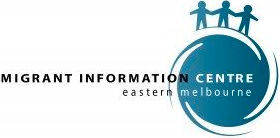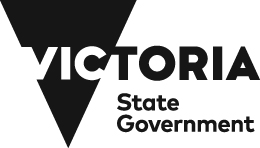Counselling for Women from Culturally and Linguistically Diverse Backgrounds
Our qualified psychologist provides counselling to women who have experienced, are experiencing or who are at risk of experiencing family violence.
We also facilitate therapeutic group programs so women can better understand the impact of family violence on themselves and their children, Family Law and the services that are available to assist them. Our groups are designed to increase participant’s self-esteem and empower them to make choices to ensure their, and their children’s, safety.
To make a referral please download the Referral Proforma and Email the completed form to mic@miceastmelb.com.au. Please ensure that the client consents for the information to be given to the MIC.
For the latest feedback on our Family Violence Program see Family Violence Program Feedback Report July 2020 to June 2021.
For more information download our Family Violence Brochure in the following languages: English, Chinese, Farsi, Hakha Chin, Hindi and Zomi.
Talking Can Help
Talking about problems with our professional staff can help.
We will help you to:
- identify your goals, build on your strengths and understand the choices that are available to you
- understand Family Law in Australia and the services that are available to support you and your children.
We can meet in a place where you feel safe and we will protect your privacy.
If required, we can assist you to access other services, including going with you to your first appointment if you need our support.
For further information please contact us.
See our Privacy Statement (English).
See our Privacy Statement (Chinese).
See our Privacy statement (Farsi).
See our Privacy Statement (Hakha Chin).
See our Chin Zomi – Privacy Statement
See our MIC Eastern – Privacy Statement (Hindi)
Also see our research and family violence project reports.
This programme is supported by the Victorian Government.
Primary Prevention and Early Intervention Programs
Strengthening Refugee Families in the EMR Project
Three respected leaders from the Iranian, Hakha Chin and Zomi communities were filmed to deliver important messages to their communities about healthy relationships, the importance of communication and Australian family law as part of the Multicultural Faith and Community Leaders Family Violence Prevention Program, which is designed to challenge traditional gender roles and expectations adopted by people from diverse backgrounds that contribute to family violence.
Please see the links to the leader’s videos below.
Iranian: https://www.youtube.com/watch?v=GKJ_YjYrpH4
Hakha Chin: https://www.youtube.com/watch?v=cpf5BGgxWYc
Zomi: https://www.youtube.com/watch?v=ZbMdahkpqt4
The videos are filmed by the Migrant Information Centre (Eastern Melbourne) as part of the Strengthening Refugee Families in the Eastern Metropolitan Region Project, funded by the Department of Families, Fairness and Housing through ‘Supporting Multicultural and Faith Communities to Prevent Family Violence Grant Program’.
Family Relationships Programs
Migrating to a new country can be stressful particularly for refugee families who have experienced trauma. The new culture can be very different from their country of origin which can impact on the traditional roles of men, women and children.
Utilising a psycho-educational approach, the MIC works with a qualified psychologist to assist group participants to identify and challenge cultural values and attitudes towards family issues, build respectful relationships, enhance self-esteem and teach conflict resolution without using family violence.
For further information or to make a referral, please contact us.
Respectful Relationships Programs
In partnership with The Workshop and Therapeutic Engagement Support Services Association (TESSA) and Victoria Police, Respectful Relationships Programs are delivered to refugee youth aged 12 to 15 years old to increase their knowledge of respectful relationships within an Australian cultural and legal context and to challenge traditional beliefs about the roles of men and women that reinforce gender inequality, male domination and violence against women.
This particular age range was chosen on the basis that early intervention before attitudes are formed is more successful in achieving a shift in traditional gender modelling in the long run. Further, newly arrived refugee youth in this age range have generally not started displaying adolescent risk behaviour and as a result, are more receptive to new ideas and ways of relating to each other.
The Respectful Relationships Program includes mixed sessions that covers what is meant by respectful relationships in an Australian context and Family Law, alcohol and drug abuse and sexual behaviours. The sessions targeted at males focus on strategies for better self-control and anger management and the sessions for females assists participant’s to build self-esteem, and increase their knowledge and encourage them to access support if they do experience family violence whether it occurs in their relationships or their family.
For further information or to make a referral, please contact us.
Gender Equality Animations
The Migrant Information Centre (Eastern Melbourne) has developed animations that promote gender equality and gender equity in a Australian social and cultural context. The animations which have been translated into Hakha Chin, Karen and Zomi/Tedim Chin recognise the benefits of gender equality for families over generations.
The animations were launched via Zoom on the 10th December 2021 and included talks by Diana Thomas, President of the Eastern Karen Community Association of Victoria and Pastor Thang from the Zomi community. The support of community leaders and faith leaders in this work is invaluable when working with newly arrived refugee communities on family violence, prevention and early interventions. They play an important role in engaging their community members and encouraging discussion and change in family relationships.
To hear their inspiring words please clink on this link: https://us02web.zoom.us/rec/share/hX4ZNwahfggkVj49JU-i656PowRBHJcYoFbF1qdQCZ31K6PH51DGMBnU_rdRSm4p.ljFYWkmbQDjbXaw6 Passcode: C1mA$?u7.
To view the videos please click on the links below:
English: https://www.youtube.com/watch?v=Wud0IoOg-n4
Hakha Chin: https://www.youtube.com/watch?v=7DioAieqipg
Karen: https://www.youtube.com/watch?v=q1B3NiIadAg
Zomi: https://www.youtube.com/watch?v=ishqCBmORIw
For further information please email mic@miceastmelb.com.au.
This programme is supported by the Victorian Government.

